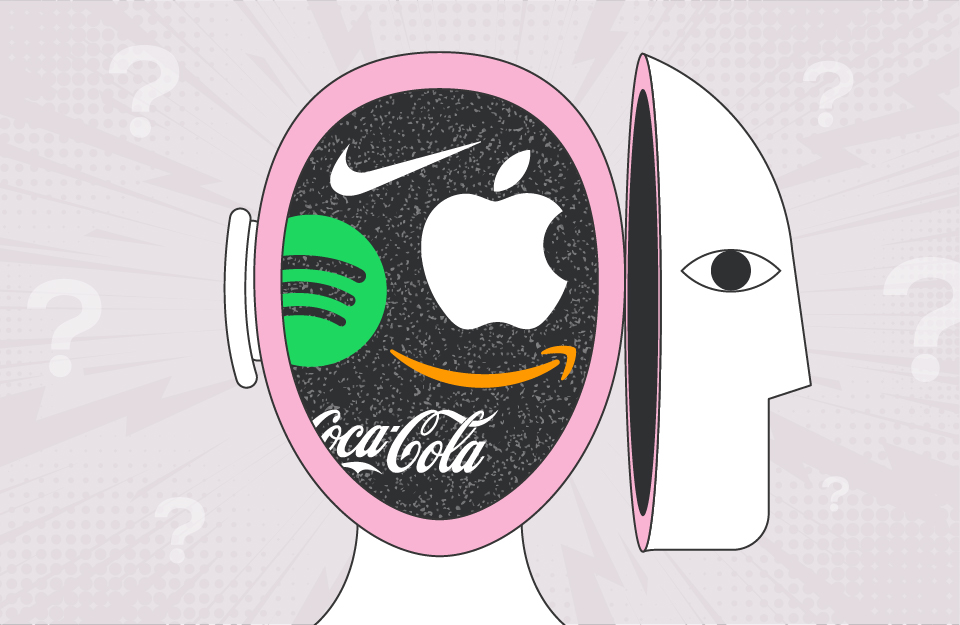Unlocking Profits Through Strategic Branding Services
Your brand is more than just a name or a logo—it’s your most valuable asset that can make or break your business. Brand management, the strategic process of maintaining and enhancing your brand’s reputation and value, is directly tied to your company’s profitability. By standing out from the competition effective brand management has a direct impact on your bottom line in: driving growth, customer loyalty, and long-term success.
Whether you’re a startup or a seasoned business, investing in branding services can be a game-changer. In this blog, we’ll explore how brand management affects your financial performance and why businesses that prioritise branding see tangible results in their bottom line.
What Is Brand Management?
Brand management involves the process of creating, nurturing, and protecting the identity and reputation of your brand over time. This includes everything from designing your brand’s visual identity to monitoring customer perceptions, ensuring consistency across channels, and managing the emotional connection your brand fosters with clients and customers.
A successful brand management strategy aligns all aspects of your business—marketing, customer service, product development, and communications—under a cohesive and authentic brand identity.
Key components of brand management include:
Brand Positioning
Defining how your brand fits within the marketplace and how it differentiates from competitors. Key to this is messaging that authentically tells your story in a compelling and engaging way.
Brand Identity
The visual and emotional representation of your brand depicted as a logo. Colour, font and illustrative elements combine to represent your tone of voice.
Brand Equity
The value your brand holds in the minds of clients/consumers compared to your competitors.
Client/Customer Perception
How customers view and feel about your brand.
Reputation Management
Ongoing efforts to protect and enhance your brand’s reputation.
Companies that take the time to invest in robust brand management strategies often see increased customer loyalty, higher market value, and ultimately, a stronger financial performance.
1. Builds Brand Equity for Long-Term Value
Brand equity is the value associated with your brand’s name and reputation, and it plays a significant role in influencing your bottom line. When consumers recognise and trust your brand, they’re willing to pay more for your products or services—often referred to as the “brand premium.” This increased willingness to pay directly translates into higher profits.
For example, why do consumers willingly spend more on an iPhone over a generic smartphone with similar features? Apple has built strong brand equity over the years through consistent branding, innovation, and customer experience. This brand equity allows them to charge a premium price, contributing to their significant market share and revenue growth.
2. Drives Customer Loyalty and Repeat Business
A strong brand identity fosters emotional connections with consumers, making them more likely to stay loyal to your brand. Loyal customers are not only repeat buyers but also advocates who refer your brand to others, creating a cycle of ongoing revenue. Research shows that acquiring a new customer is 5 to 25 times more expensive than retaining an existing one. By focusing on branding services that enhance customer loyalty, you can reduce customer acquisition costs and increase lifetime customer value, directly improving your bottom line.
3. Increases Market Share and Competitive Advantage
A strong brand can be your most powerful tool for differentiation. Effective brand management ensures that your brand stands out in the marketplace, attracting more customers and increasing your share of the market.
The more market share your brand captures, the higher your revenues—and this increase in revenue directly impacts your bottom line.
4. Attracts and Retains Top Talent
Your brand is not only important to clients and customers but also to employees and potential hires. A strong brand attracts top talent who want to work for companies that align with their values, mission, and vision. Brand management that focuses on creating a positive internal culture can improve employee satisfaction, reduce turnover, and ultimately lower recruitment and training costs.
5. Enhances Brand Perception and Customer Trust
A key goal of brand management is to shape positive perceptions and build trust with your audience. Maintaining a consistent and authentic brand image is critical to sustaining customer trust. One negative experience can spread quickly online, damaging your reputation and hurting sales.
By investing in professional branding services, businesses can ensure they present a cohesive and trustworthy brand across all touchpoints, from social media posts to customer service interactions. This not only boosts customer confidence but also helps convert leads into paying customers. Research has shown that 81% of consumers need to trust a brand to buy from it.
Trustworthy brands are seen as reliable and credible, leading to higher conversion rates, reduced customer acquisition costs, and stronger financial outcomes.
6. Boosts Marketing Efficiency
Effective brand management ensures that your marketing efforts are more efficient and yield a higher return on investment (ROI). A well-managed brand, supported by consistent messaging and a clear value proposition, makes marketing campaigns more effective. This results in better brand recall and higher engagement, which reduces the overall cost of acquiring new customers. For example, when you have a strong brand identity, your ad campaigns are more likely to be memorable and resonate with your audience. This can lead to better conversion rates and a lower cost per lead. Additionally, word-of-mouth marketing and organic growth tend to be stronger with a well-managed brand, reducing the need for expensive paid advertising campaigns.
How Branding Services Can Help Your Brand Management
Given the complexity and importance of brand management, many businesses choose to work with branding services to develop and implement effective strategies. These services provide expertise in various aspects of branding, from visual identity and messaging to reputation management and customer engagement.
Branding services typically offer:
Brand Strategy Development
Defining your brand’s positioning, target audience, and value proposition.
Visual Identity Design
Creating logos, colour schemes, typography, and other visual elements that reflect your brand.
Messaging and Content Creation
Crafting consistent and impactful messaging across all channels.
Reputation and Crisis Management
Monitoring and managing your brand’s reputation online.
Customer Engagement
Building strategies to foster long-term relationships with your audience.
By leveraging the expertise of branding professionals, you can ensure that your brand is managed effectively, resulting in greater customer loyalty, higher market share, and improved financial outcomes.
Conclusion
Strengthen Your Bottom Line with Effective Brand Management
Brand management is no longer optional—it’s essential. A well-managed brand drives customer loyalty, increases brand equity, and helps your business capture a larger share of the market. Ultimately, these benefits lead to stronger financial performance and a more robust bottom line.
Investing in professional branding services is one of the most strategic moves you can make for your business. Whether you’re looking to enhance your brand’s visual identity, strengthen customer relationships, or expand into new markets, effective brand management will pave the way for sustainable growth and profitability.
By focusing on creating and maintaining a strong brand, you’re not just building a business—you’re building an asset that will continue to deliver value for years to come.




